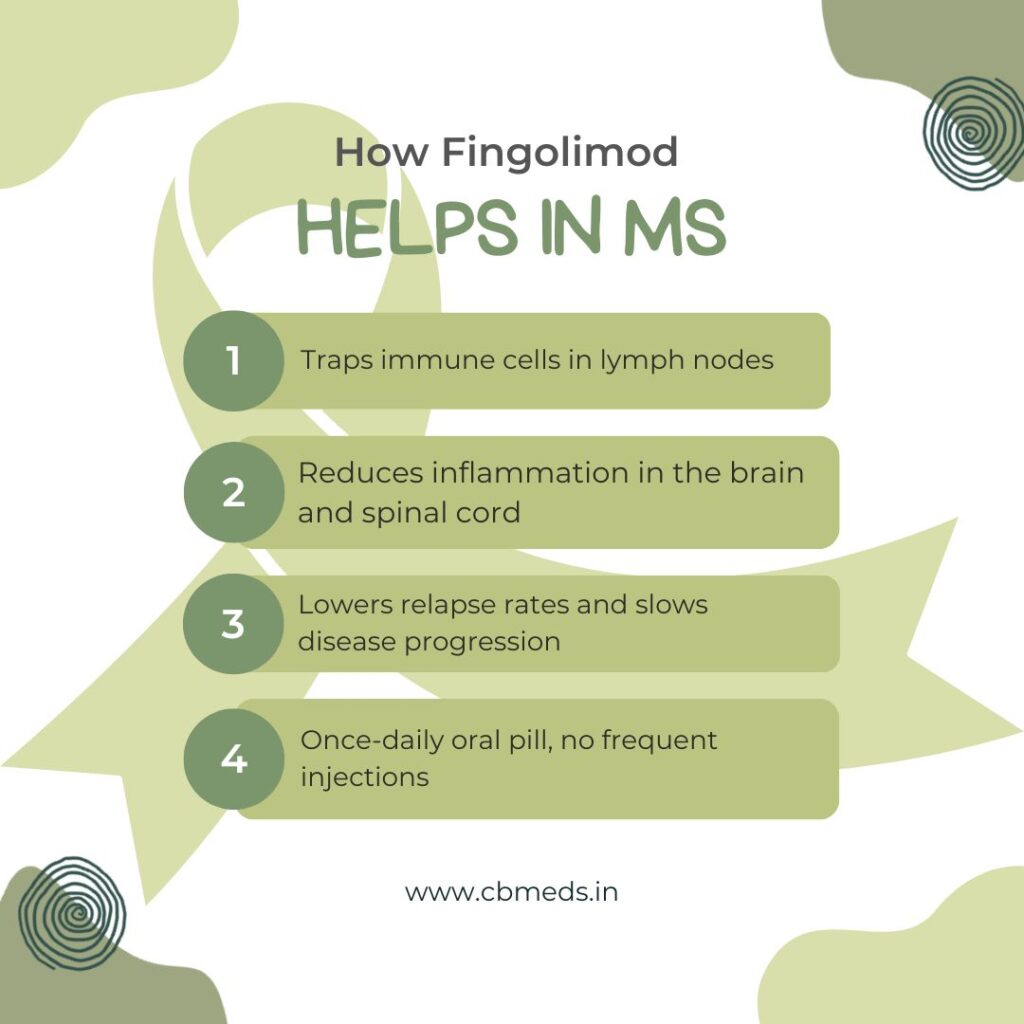
Multiple Sclerosis (MS) is a chronic neurological condition that affects the brain and spinal cord. It disrupts the communication between the brain and other parts of the body, leading to symptoms such as fatigue, numbness, muscle weakness, and impaired coordination. While there is no cure for MS, advancements in treatment have significantly improved the quality of life for those living with the condition. Among these innovations is Fingolimod, a groundbreaking oral medication that has become a vital part of MS management.
How Fingolimod Works
Fingolimod operates by targeting a specific pathway in the immune system to reduce the inflammation and damage caused by MS. It binds to sphingosine 1-phosphate (S1P) receptors found on lymphocytes (a type of white blood cell). By doing so, Fingolimod traps these immune cells in the lymph nodes, preventing them from entering the central nervous system (CNS), where they would otherwise attack the myelin sheath—the protective covering around nerve fibers. This mechanism helps to:
- Reduce inflammation in the brain and spinal cord.
- Protect nerve fibers from damage.
- Slow the progression of the disease.
Benefits of Fingolimod in MS Treatment
Fingolimod offers multiple benefits, making it a preferred choice for many patients and healthcare providers. These include:
- Lower Relapse Rates: Studies have shown that Fingolimod significantly reduces the frequency of MS relapses, providing more stability in day-to-day life.
- Slower Disease Progression: By limiting immune cell activity in the CNS, Fingolimod helps delay the progression of physical disability in MS patients.
- Reduced Inflammation: The medication minimizes inflammatory damage, which is crucial for preserving nerve function and overall brain health.
- Convenient Dosage: Unlike injectable treatments, Fingolimod is a once-daily oral pill, offering ease and convenience without the need for needles or infusion centers.
What to Expect When Taking Fingolimod
Before starting Fingolimod, patients typically undergo a thorough health assessment, including heart monitoring, as the medication can temporarily slow heart rate upon the first dose. Regular follow-ups and blood tests are necessary to monitor liver function, white blood cell counts, and overall health. Some potential side effects include headaches, flu-like symptoms, and back pain. However, most people tolerate the treatment well under proper medical supervision.
Who Can Benefit from Fingolimod?
Fingolimod is primarily prescribed for adults and children aged 10 years or older with relapsing forms of MS. It is particularly effective for those experiencing frequent relapses or new brain lesions, as shown by MRI scans. However, it may not be suitable for everyone, especially individuals with certain heart conditions, liver issues, or a history of infections.
Final Thoughts
Fingolimod represents a significant step forward in the treatment of Multiple Sclerosis. By reducing relapses, slowing disease progression, and offering a convenient oral option, it empowers patients to manage their condition more effectively. While it is not a cure, Fingolimod has improved the outlook for many living with MS, enabling them to lead fuller, more active lives.
If you or someone you know is living with MS, consult a healthcare professional to determine if Fingolimod is the right treatment option. Always stay informed, and never hesitate to ask questions about your health journey.
Disclaimer: This article is for informational purposes only and does not substitute professional medical advice.
